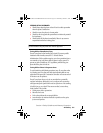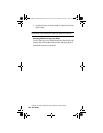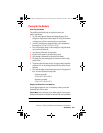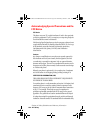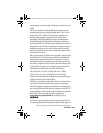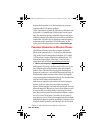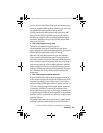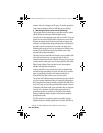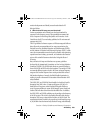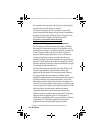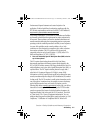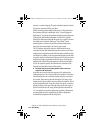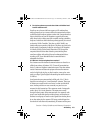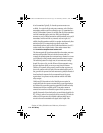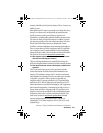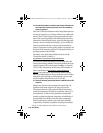Section 4: Safety Guidelines and Warranty Information
4A: Safety 109
monitor developments and identify research needs related to RF
biological effects.
5. What levels of RF energy are considered safe?
Various organizations and countries have developed standards for
exposure to radio frequency energy. These standards recommend safe
levels of exposure for both the general public and for workers. In the
United States, the FCC has used safety guidelines for RF environmental
exposure since 1985.
The FCC guidelines for human exposure to RF electromagnetic fields are
derived from the recommendations of two expert organizations, the
National Council on Radiation Protection and Measurements (NCRP)
and the Institute of Electrical and Electronics Engineers (IEEE). In both
cases, the recommendations were developed by scientific and engineering
experts drawn from industry, government, and academia after extensive
reviews of the scientific literature related to the biological effects of
RF energy.
Many countries in Europe and elsewhere use exposure guidelines
developed by the International Commission on Non-Ionizing Radiation
Protection (ICNIRP). The ICNIRP safety limits are generally similar to
those of the NCRP and IEEE, with a few exceptions. For example, ICNIRP
recommends different exposure levels in the lower and upper frequency
ranges and for localized exposure from certain products such as hand-
held wireless telephones. Currently, the World Health Organization is
working to provide a framework for international harmonization of RF
safety standards.
The NCRP, IEEE, and ICNIRP all have identified a whole-body Specific
Absorption Rate (SAR) value of 4 watts per kilogram (4 W/kg) as a
threshold level of exposure at which harmful biological effects may
occur. Exposure guidelines in terms of field strength, power density and
localized SAR were then derived from this threshold value. In addition,
the NCRP, IEEE, and ICNIRP guidelines vary depending on the frequency
of the RF exposure. This is due to the finding that whole-body human
absorption of RF energy varies with the frequency of the RF signal. The
most restrictive limits on whole-body exposure are in the frequency range
of 30-300 MHz where the human body absorbs RF energy most efficiently.
Sprint FM OUG NO BROWSER CTIA-3a.book Page 109 Wednesday, October 9, 2002 1:42 PM



